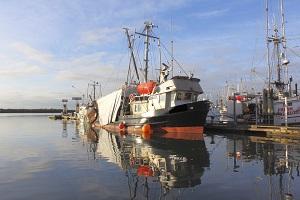
World Ocean Day is a reminder of the growing depletion of maritime resources. Currently, FAO reports that 34.2% of all maritime stock is fished unsustainably, posing a threat to global marine ecosystems. The FAO Agreement on Port State Measures (PSMA) is the first binding international agreement on illegal, unreported and unregulated (IUU) fishing, signed by 69 Parties, including the European Union representing its 27 Member States.
At the third meeting of the Parties, which took place from 31 May to 4 June 2021, the PSMA Secretariat presented the prototype of the PSMA Global Information Exchange System (GIES). This global information system will support Parties in fulfilling their obligations under the Agreement by sharing information among them with the purpose to assist each other in blocking the entrance of fish products derived from IUU fishing from entering the international markets.
Integral to the success of GIES is the United Nations Code for Trade and Transport Locations (UN/LOCODE), a global standard developed by UNECE. This global standard guarantees consistency and accuracy when designating ports, with each one assigned a unique five-character code. Currently more than half of PSMA-designated ports have been assigned a UN/LOCODE. GIES aims at using these codes to identify PSMA-designated ports in the system, leading to a decrease in IUU fishing by preventing illegal fishers from unloading in these ports. By blocking their access to national and international markets, this also reduces the incentive for illegal fishers to operate.
UNECE will work with FAO and all relevant stakeholders to further strengthen the electronic identification of locations in GIES and conduct a feasibility study to implement automatic data exchange between GIES and the UN/LOCODE system.
Part of the fight against illegal fishing involves establishing communication channels between fishing vessels, Regional Fisheries Management Authorities and coastal states. To facilitate this, UNECE has developed the United Nations Fisheries Language for Universal Exchange (UN/FLUX). This is a global standard that supports sustainable use of the worlds fish stocks by allowing authorities to electronically collect, exchange and process data from fishing vessels, including vessel and trip identification, daily catch, and even the species and quantity of fish caught. To date, UN/FLUX enables authorities to monitor over 85,000 fishing vessels worldwide.
The introduction of UN/FLUX and the implementation of the PSMA Agreement make a concrete contribution towards SDG14 on the sustainable use of marine resources, and specifically target 14.4 – ending overfishing and IUU fishing, as well as destructive fishing practices.

